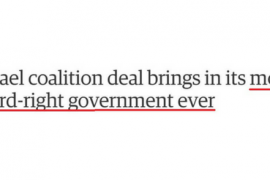A guest post by Yitzchak Besser
Yom Kippur in Jerusalem, where the city sits in quiet contemplation, is still breathtaking after more than two millennia of practice. And experiencing the new year on Rosh Hashana with friends and family in the Jewish capital, feeling the kindness and community of a city filled with people celebrating the same holiday as you – that is something which I as a new immigrant still treasure. Then there’s Succot, where people come down from their spiritual high on Yom Kippur and embrace the joy of the holiday season. Quite literally, there was partying in the street and songs in the air.
But there’s one landmark – or rather time-marked, I suppose – day in the Jewish month of festivals which has quietly gone unnoticed. This should come as no surprise; it happens every year. It’s a low-key day in the hectic hustle and bustle of the action-packed month.
That day is Tzom Gedaliah (The Fast of Gedaliah), a day of mourning on the third day of the month, following the celebrations of the New Year. Yet who are we mourning? In fact, nowhere else in the Jewish calendar do we mourn for a single man. Moreover, why Gedaliah? There’s no Tzom Moses or Tzom Solomon, no Fast of Abraham or Fast of Daniel. So what’s Gedaliah got that they don’t?
The truth of the matter was that Gedaliah was a political appointee. In 597 BCE, Nebuchadnezzar and his armies conquered Israel. In order to keep the Jewish populace under control, Nebucahdnezzar brought their leaders to Babylon as captives. He believed that the lower classes would be powerless without someone to guide them. Realizing that his newly acquired territory would need some form of government, Nebuchadnezzar appointed Gedaliah as his governor, safe in the knowledge that he came not from a priestly background nor was he a son of the ruling house of David. While Jewish, Gedaliah did not pose any threat as an upstart leader riling up the locals to overthrow their Babylonian taskmasters.
Unfortunately, Nebuchadnezzar did not count on political subterfuges within the Jewish camp. A Jew of Davidic lineage assassinated Gedaliah in a bid for control over the capital. He and his supporters only later understood the infeasibility of their plans and the likelihood that rather than power, they should have expected a violent reprisal from Babylon. They fled to Egypt out of fear for their lives.
The Babylonians decided that it was too dangerous – politically or otherwise – to leave any vestige of power in the hands of the Jews so they took the last tattered traces of independence from our upstart ancestors. After Gedaliah’s death, Nebuchadnezzar appointed a pagan in his place, though not before taking another large contingency of captives back to Babylon.
Tzom Gedaliah was established to mourn the loss of a pious man lost in a chaotic time. But more so, it was created to mark in despondence the sad state of affairs whereby Jew murdered Jew. We as a people had lost our unity and our ethics, and eventually our sovereignty.
We mourn, perhaps more than the man himself, the position he held. We mourn the loss of our political power, the sovereign right to control our own destiny as a nation-state in our historical homeland. Gedaliah’s death cements our future as stateless refugees (we sporadically and briefly possessed our independence, such as during the Second Temple Period, but never to the same degree as during the epoch preceding the Babylonian conquest) and officially begins the Diaspora, an age only too recently ended in 1948.
We cherished this independence. We fought and dreamt for it. We lived and bled and died for it for centuries. And now we have it, in a world that continually seeks to strip us of this right and deny our state its existence.
In our days, regimes threaten to wipe us out and European leaders demean us with “scum state” epithets. Journalists on one side of the world claim yet again that Jews in fact control the media and don’t deserve to claim discrimination against us as we’re no longer a minority and on the other side of the world call our prime minister a thug addicted to violence despite the wide-reaching steps he’s taken on the road to peace. White House correspondents tell us to abandon the state we’ve worked so hard to build. “Pack up and head back to Germany or Poland,” they cry.
With these arrows flung from different directions all aimed at our national existence, Tzom Gedaliah’s lesson in the importance of political independence is crucial for our times.
We have our state, free from the burdens of a foreign empire’s overbearing procurators and governors. Let us not be like the Jews of Gedaliah’s generation, who lost control of their destiny due to their own in-fighting. For since his death, we have mourned our loss of unity and sovereignty. Now we once again have a nation-state to call our own in our ancient homeland. Let us, in one voice, fight to preserve it.



